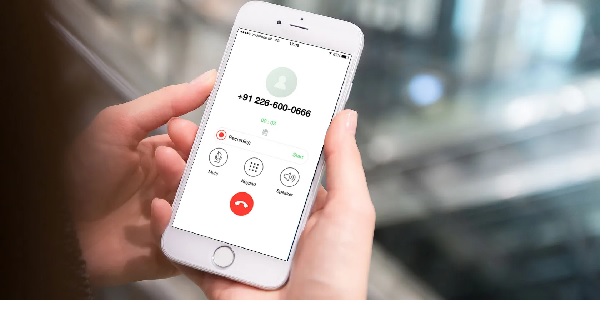Recording conversations over the phone is as easy as the click of a button. But doing so without outright permission from all participants involved in the call may lead to legal troubles, especially if the recorded information is confidential, false, or amounts to libel. In this article, we will be discussing the legality of call recording in Nigeria. As you read on, you’d understand the provisions of different laws on call recording in Nigeria. Read on to discover if call recording is legal in Nigeria. Let’s dive in.

-
Is Call Recording Legal in Nigeria?
There are currently no laws in Nigeria that expressly prohibit call recording in Nigeria. However, call recordings made without the consent of the other party may go against the provisions of Section 37 of the Nigerian Constitution which protects the privacy of Nigerian citizens. Law enforcement agencies can intercept communications provided by communication companies under certain conditions, per the provisions of Lawful Interceptions of Communications Regulations, 2019.
-
What is the Position of the Law on Call Recording in Nigeria?
There are no laws that have been enacted in Nigeria that expressly prohibit call recording in Nigeria. According to Section 36 (12) of the 1999 Constitution of the Federal Republic of Nigeria:
“Subject as otherwise provided by this Constitution, a person shall not be convicted of a criminal offense unless that offense is defined and the penalty thereof is prescribed in a written law refers to an Act of the National Assembly or a Law of a State, any subsidiary legislation or instrument the provisions of a law.”
From the above excerpt from the 1999 Constitution, call recording is not an offense in Nigeria nor is there a penalty prescribed for it.
However, another section of the Nigerian Constitution, particularly Section 37, makes provision for the protection of the privacy of Nigerian citizens, their homes, correspondence, telephone conversations, and telegraphic conversations. Recording and disseminating of recorded information that is confidential or can amount to libel, could be viewed as an infringement of the fundamental human right to privacy and family life. But exactly how the Constitution seeks to protect the privacy of Nigerians is not explicitly stated. Consent between the involved parties should be sought before any call recording session begins to be on the safe side.
Nigerian law enforcement agencies, under certain circumstances, can intercept communications of citizens provided by communication companies in the country. The provisions of Lawful Interception of Communication Regulations, 2019, a supplementary to the Nigerian Communication Act, 2003, give power to law enforcement agencies to do so. These government agencies would, however, need to first obtain a warrant from a judge to lawfully invade the privacy of private citizens.
The situations which can warrant law enforcement agencies to want to intercept the mobile phone conversation of a citizen include the following:
- The information would be in the interest of national security
- The information would help prevent or investigate a crime
- The information would protect and safeguard the economic well-being of the country
- The information would be in the interest of public interest or safety
- The information would assist foreign authorities per the International Mutual Assistance Agreement
Above are the grounds Nigerian law enforcement authorities can use to intercept the phone call conversation with the help of licensed communication companies in the country. However, a Judge would have to issue a warrant 48 hours to the day of intercepting the phone call. With a warrant in hand, law enforcement authorities in Nigeria can intercept any communication as described in the warrant, disclose intercepted communication, and assist foreign authorities with information.
In some conditions where law enforcement agencies need to move in quickly, the NCC’s Lawful Interception of Communication Regulations permits the initiation of call recording before a warrant from a Judge is granted. However, the warrant must be sought from a Judge within 48 hours of initiating the interception.
The following examples are what can motivate the Nigerian law enforcement authorities to intercept conversations before getting a warrant:
- The immediate danger of death or serious injury to any person.
- Activities that threaten national security
- Organized crime
In the event law enforcement agencies are denied a warrant from a Judge within 48 hours after the interception has begun, such interception would be considered unlawful.
Furthermore, the Regulations state that, “Any person, Licensee or its officer that fails to comply with these Regulations shall be liable to a fine of N5,000,000.00 and where such offense is allowed to continue the punishment is a daily default payment of N500,000.00.
-
What to Do to Protect Yourself from Committing an Offence When You Record Calls
Although there is no law in Nigeria that expressly prohibits call recording, you might be held liable if you recorded phone calls without consent from all participants. Call recordings that are made public, especially those that are confidential, false, or libelous, may be perceived to violate the privacy of an aggrieved party.
To be free from any liabilities that may arise from recording a phone call or conversation, you must let the other party give consent before you begin recording. However, the Nigerian Constitution fails to clearly state how the privacy of the Nigerian citizenry should be protected.
For law enforcement agencies empowered by the NCC’s Lawful Interceptions of Communications Regulation, 2019 to intercept communications provided by communication companies, a warrant from a Judge needs to be in place to make the exercise legitimate. If the interception exercise continues after a failure to obtain a warrant from a Judge, such interception will be considered unlawful.
According to NCC’s Lawful Interceptions of Communications Regulation, 2019 defaulters, which may be an individual, licensed communication company, or its officers, shall be liable to a penalty of N5,000,000.00 fine. If the defaulter continues to flout the provisions of the Lawful Interceptions of Communications Regulation, 2019, the penalty is a daily, default fine of N500,000.00.